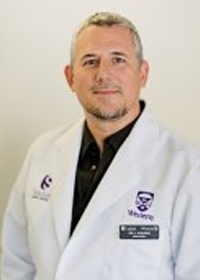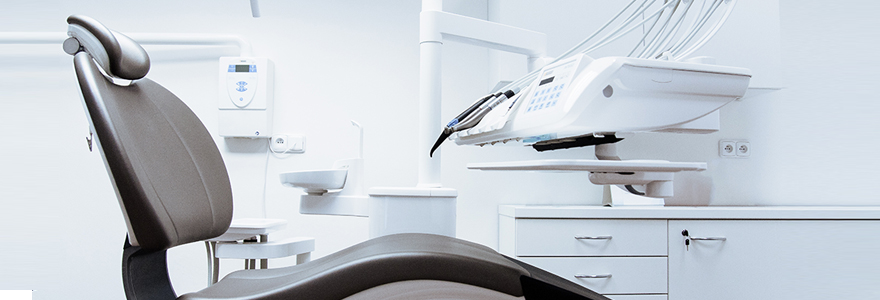Feature: The path to sustainable dentistry
By Cam Buchan
Dr. Les Kalman is a huge fan of planet Earth.
So, when he learned the dentistry profession’s representative body was developing a statement on sustainability for the oral health care profession, he felt the call to contribute.
“I think we can all agree that human activity has negatively affected the planet, resulting in climate change and environmental pollution,” said Kalman.
 Kalman was part of the FDI World Dental Federation (FDI) industry-wide team of health care professionals, academic experts, legislators and associations who created the Consensus on Environmentally Sustainable Oral Healthcare: A Joint Stakeholder Statement. Completed in March 2022, the statement outlines the challenges and solutions to improving sustainability in dentistry without compromising patient welfare.
Kalman was part of the FDI World Dental Federation (FDI) industry-wide team of health care professionals, academic experts, legislators and associations who created the Consensus on Environmentally Sustainable Oral Healthcare: A Joint Stakeholder Statement. Completed in March 2022, the statement outlines the challenges and solutions to improving sustainability in dentistry without compromising patient welfare.
The development of the 70-plus page document was spurred by the United Nations Sustainable Development Goals (SDGs), which were created by the UN to achieve a better and more sustainable world by 2030.
The document outlines opportunities for more sustainable practices based on the 4 Rs: reduce, recycle, reuse and rethink. Significant reductions can also be made in the volume of waste generated from manufacturing processes, packaging, the high use of single-use plastic products, and CO2 associated with transport.
Metrics from across the industry illustrate the magnitude of the challenge:
- The daily global water usage from cleaning our teeth equates to 6,400 Olympic swimming pools per day, in addition to water used throughout the supply chain.
- A UK study calculated that 14.4 tonnes or two billion single-use plastic items per year are used in routine adult primary care dental procedures.
- In North America, the total remake rate of dental prostheses has been documented as high as 11 per cent.
“The urgency for change in the industry is paramount, and the time to act is now.”
A lifelong passion for the planet
By reading National Geographic at an early age and capturing nature through the camera lens, Kalman’s passion for Earth’s well-being was born. This interest led him to a BSc in Environment and Resources Management in Geography at Western.
“The program illustrated many of the challenges we are currently facing. After entering dentistry, it was clear the profession could use some environmental tailoring,” Kalman said. Consequently, much of his research has been in the medical device space, focusing on improving the accuracy, efficiency, and cost of treatment with novel digital workflows, which simplify treatments, save time, and increase accessibility, with potentially less environmental impact.
It was a perfect background for developing a blueprint for industry-wide change.
But introducing more sustainable practices could be hindered by the complexity of dentistry, which varies dramatically across the globe in accessibility and standards of care.
“As humans, we seem to be set in our ways and resistant to change,” said Kalman. “The dental profession seems to have these same barriers to change. It’s also a challenging profession, and change may seem even more daunting to those being challenged.”
Education first
Educators have an important platform from which to increase awareness, disseminate information and be drivers for change.
“As we train the dentists of tomorrow, we must educate them with current, evidence-based research so they can be leaders in their communities in embracing these new practice strategies,” said Kalman, who plans to propose a sustainability elective for students, and as Academic Lead for Continuing Dental Education, is also developing a continuing dental education course for practitioners.
Research opportunities that include environmental impacts will also continue to be an important factor in the development of sustainable devices and approaches.
The timing is perfect.
In April 2022, Western University placed first in Canada and third in the world in the Times Higher Education 2022 Impact Rankings, a global ranking of more than 1,500 post-secondary institutions based on the same goals set by the UN that have motivated the dental profession. The recognition provides excellent momentum for the oral health care initiative.
Kalman is optimistic about the positive impact of the statement and its ability to change the industry.
“We’ve seen remarkable collaboration and communication with the sharing of information and best practices during the pandemic,” he said. “We need that same approach with sustainability.”
Success will require strong and transparent collaboration and communication with all players in the industry, from regulatory bodies and policymakers to the public.
“In my opinion, success is the provision of dentistry that meets regulatory guidelines in a manner that doesn’t negatively impact the environment. I am enthusiastic and optimistic to see what changes our dental profession can adapt to preserve our delicate planet.”









